President Raeisi, in thumping UNGA speech, reads obituary of US hegemony
By Morteza Ahmed
Iran’s President Ebrahim Raeisi delivered a thumping speech to the 78th session of the United Nations General Assembly (UNGA) in New York on Tuesday night, touching on many critical issues and earning plaudits from all and sundry.
It was the second time the Iranian president was addressing the most prestigious conference of world leaders in two consecutive years, and again he stole the limelight with his wisdom and bravery.
Among the issues he touched on include the global transition from unilateralism to multilateralism, value systems around the world, and the rising position of the Islamic Republic of Iran internationally.
On the sidelines of the UNGA summit, President Raeisi also held meetings with leaders from Algeria, Croatia, Kazakhstan, Kyrgyzstan and Pakistan, American media executives and US-based Islamic organizations. He also sat down for a conversation with UN Secretary-General Antonio Guterres.
Shift towards multilateralism
President Raeisi said the project of global Americanization has failed, referring to the staggering collapse of the policy of unilateralism with Washington in the role of a hegemon.
"The equation of Western domination does not work for the world anymore, and the old liberal order that used to serve the interests of imperialists and capitalists has been brushed aside," he said.
Iran’s president stressed that the world is “reaching a critical junction point as an emerging order of non-Western states looks to pursue closer economic and political ties with one another."
The reference was to the rise of the Global South and the expansion of the Shanghai Cooperation Organization (SCO) and BRICS, which has sent shockwaves in the Western world lately.
"As non-Western powers have emerged, there is a collective hope for a novel and equitable world order. Iran advocates maximum economic and political convergence and is interested in interacting with the global community under the principle of justice," President Raeisi remarked.
The new power blocs, he stated, offer an alternative to Western political-economic monopolies, with the Islamic Republic as a key player in this new world order.
"The Iranian nation prides itself on playing, thanks to the Islamic Revolution, the biggest role in unmasking the imperialists in the East and the West," Iran’s president asserted.
He criticized those who retain the Cold War mentality and try to achieve their interests by fueling regional conflicts and tensions around the world.
Lauding the Iranian nation for resisting "the biggest media offensive and psychological warfare in history" last year, President Raeisi said certain Western countries and their intelligence services had committed a "miscalculation" by underestimating the nation's strength.
He also slammed some European countries that claim to fight terrorism while hosting the Mujahedin-e-Khalq Organization (MKO) terror cult, which is responsible for the deaths of 17,000 Iranians.
"Through mutual political trust, economic cooperation, and indigenous security measures the goals of regional partners can be achieved more easily," President Raeisi noted.
Defense of value systems
Denouncing the desecration of the Holy Quran in many European countries, President Raeisi raised a copy of the Muslim holy book in his right hand and said its teachings cannot be burned.
The holy book, he stressed, beckons humanity towards “rationality, spirituality, the truth and justice."
"It expounds upon the unity of mankind, proclaiming all earthly inhabitants, seeks to guide all towards human dignity, and speaks of equality among humans," Iran’s president stated.
“What defines humanity and elevates human values better than God Almighty's word,” he remarked, in an indirect swipe at the governments of Sweden and Denmark.
"This is not the first time that they burn God's words, and assume that they have muffled the heaven's voice forever, but the Qur'anic teachings for the human communities shall never burn, and the flames of insult and distortion shall be no match for the truth," he affirmed.
Iran was one of the Muslim countries that strongly denounced the burning of the Muslim holy book in Sweden and Denmark under the protection of local law enforcement agencies.
The Islamophobic incidents angered the whole Muslim world, as authorities provided arsonists with police protection under the pretext of free speech, while barricading protesters and brutally cracking down on women who tried to prevent the burning.
President Raeisi also decried the Islamophobic policy of the French government, which has prohibited the Islamic Hijab and Sikh turbans in its educational and government institutions.
Iran's regional role
President Raeisi further stated that Iran has opened a new chapter in mutually beneficial relations with its neighbors, which has been one of the important priorities for his government.
"The Islamic Republic's good neighborliness policy is a benevolent policy for the region, as we firmly clasp any hand that is extended towards us in friendship," he stated.
In the last two years, the country has rejuvenated its relations with the Arab states of the Persian Gulf, and clinched numerous new economic, security and transport agreements with many countries.
"Iran supports maximal intra-regional and inter-regional economic and political convergence, and is interested in interaction with the entire world based on justice," Iran’s president stated.
"The land of Iran has unique investment opportunities, and prioritizing economic cooperation with the Islamic Republic is an opportunity for the countries of the region and the world," he said.
He further pointed out the need for regional stability, noting that the security of neighboring countries directly impacts the security of Iran, and criticized certain Western powers and intelligence agencies for disturbing this security and supporting terrorism.
"The surgical use of terrorists by certain Western governments as a political tool will be overcome by the collective will of the people of our region," President Raeisi remarked.
"Iran, who herself has been the biggest target of terrorists, has been at the forefront of combating terrorism in the region," he hastened to add.
Iran's international role
Iran’s president also reiterated his country’s consistent and unwavering position against the Zionist occupation of Palestine and the long-term repression of the Palestinians, criticizing those countries that have not yet recognized the statehood of Palestine.
He described the Israeli regime as the world's last entity that is "based on apartheid and racism, which has been founded based on war, occupation, terrorism, and violation of peoples' rights," adding that such an entity "cannot be a partner in peace."
Iran’s president also opposed the continuation of the war in Ukraine, saying that the unambiguous position of Iran is to avoid supporting war anywhere, either in Europe or in other regions of the world.
"We do not consider war in Europe to be in the interest of any European party," he said, stressing that the US rejection of any ceasefire plan shows that it has a long-term plan to weaken Europe.
He criticized America’s unilateral withdrawal from the nuclear deal (JCPOA) and years of refusal to return to the deal, noting that they violated principles of faithfulness to the covenant.
His remarks were also addressed to the European signatories who did not abide by their obligations and violated the UN Security Council Resolution 2231, warning them not to continue on the path of confrontation because it is doomed to failure.
President Raeisi added that these sanctions have had no effect on the country's progress, and that it is time for the US to end its crisis of decision-making and choose the right path.
Morteza Ahmed is a US-based political commentator and writer
Iran strongly alarms UN about dire consequences for perpetrators following Leader's martyrdom
Hezbollah strikes occupied Haifa in retaliation for Leader's assassination
Ansarullah mourns Leader's martyrdom as 'great loss' caused by 'most wretched terrorists'
Hezbollah offers condolences to Iranian nation over Leader’s martyrdom
US-Israeli strike targets IRIB facility; broadcasts continue
IRGC: Latest waves of Op. True Promise 4 led to tanker strikes, base shutdowns, heavy casualties
CENTCOM confirms US troops killed in Iran’s retaliatory strikes
China ‘strongly condemns’ US-Israeli assassination of Iran’s Leader


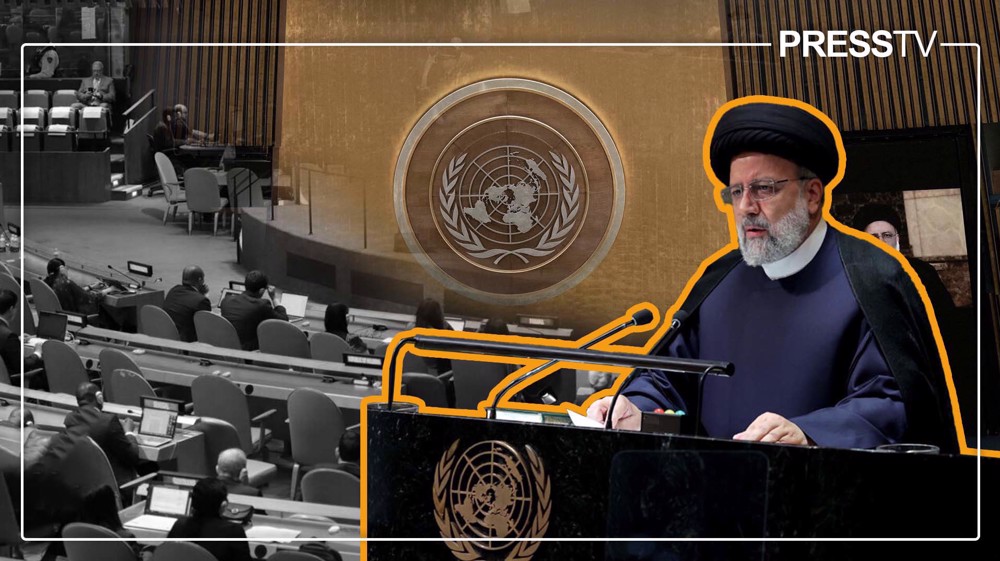
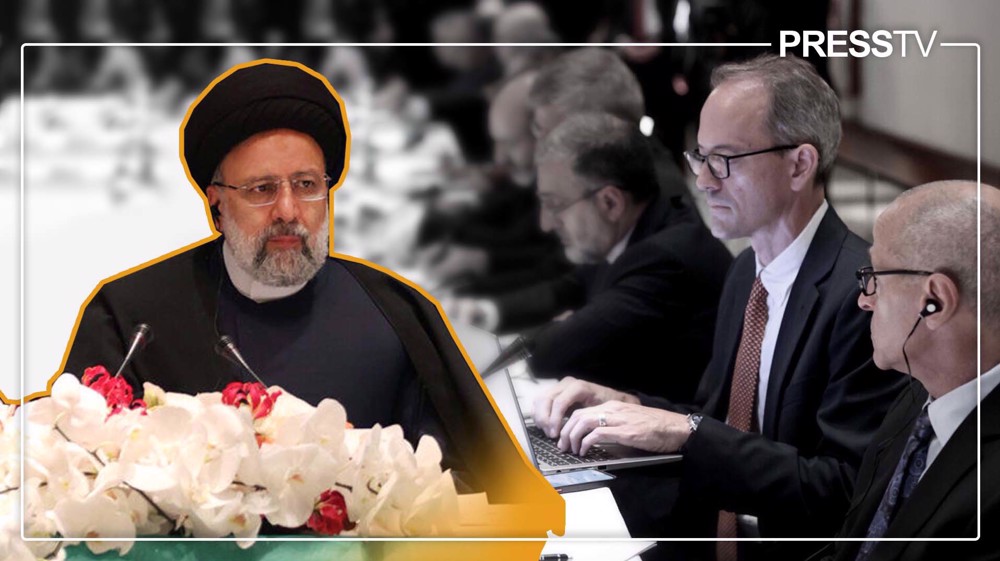
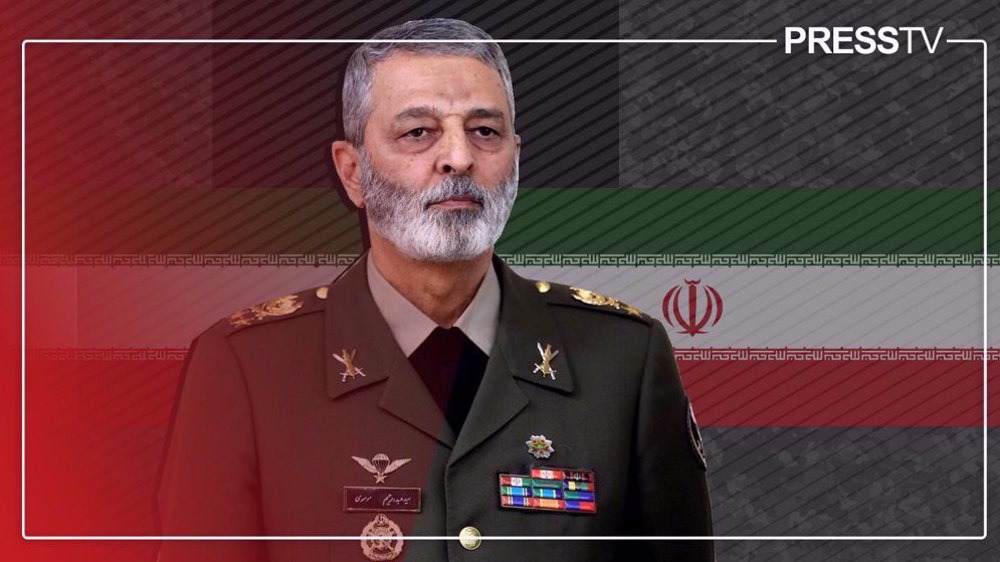
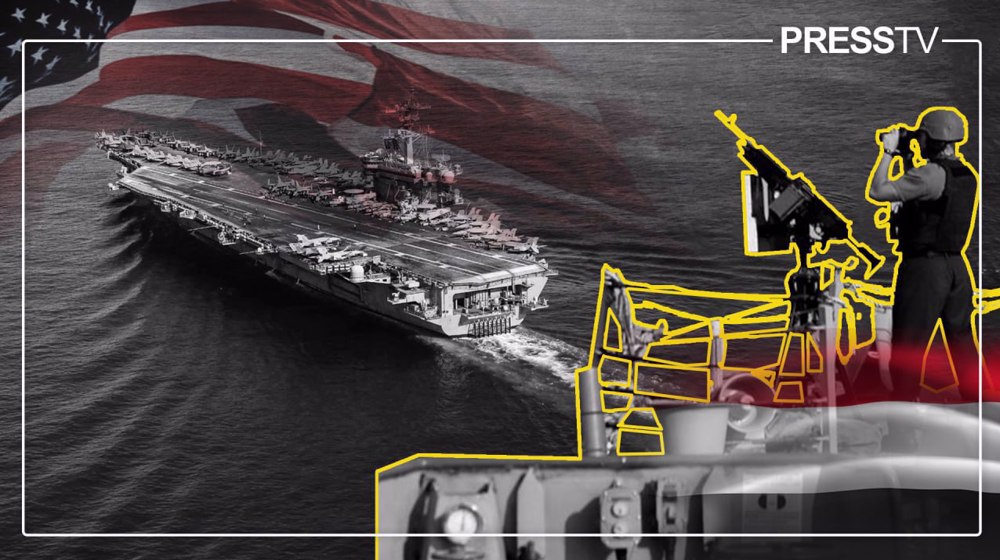
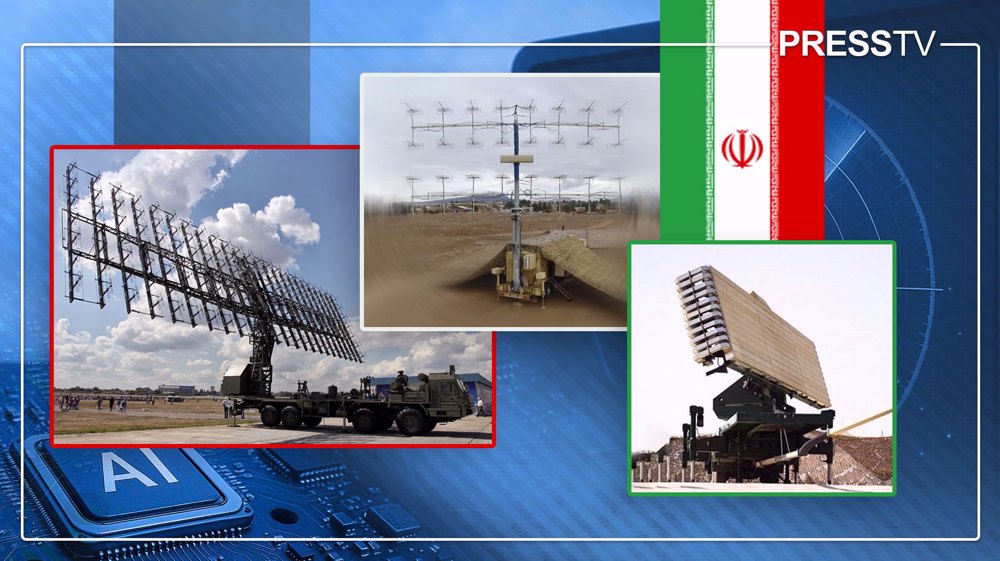



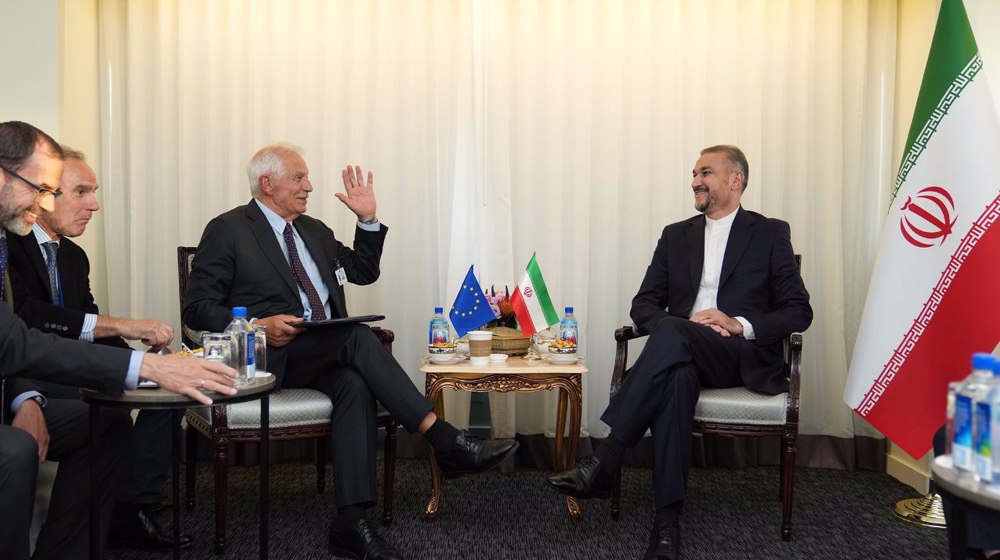
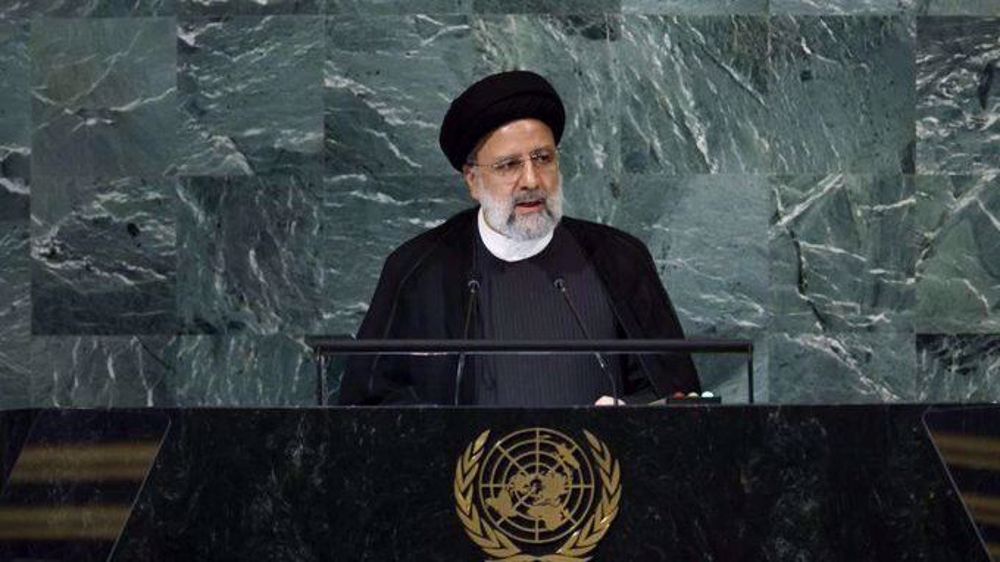

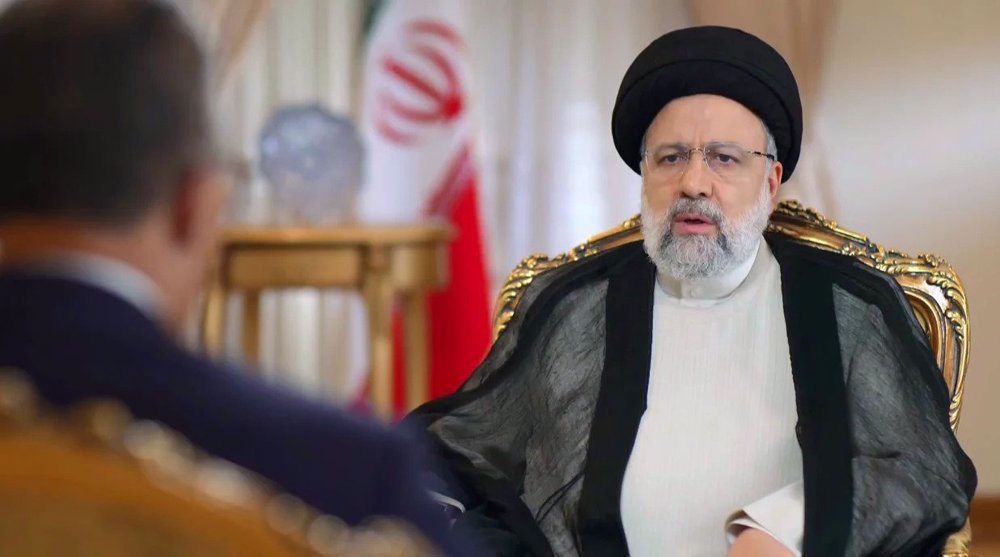

 This makes it easy to access the Press TV website
This makes it easy to access the Press TV website